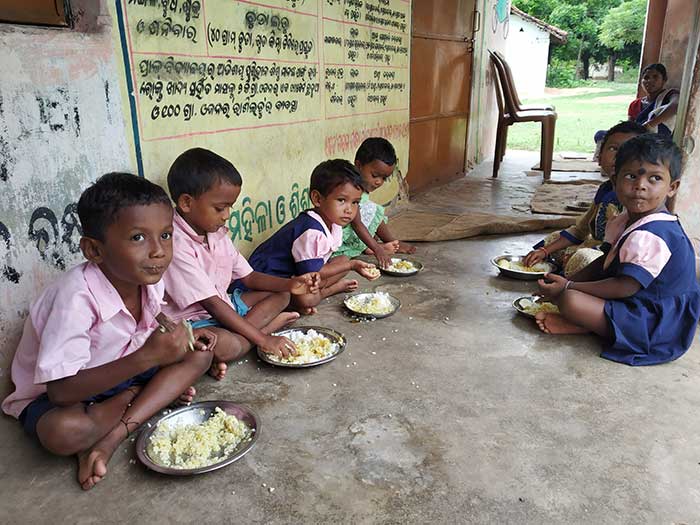A recent report released by Collective Action for Nutrition (CAN) which works in 24 blocks of six KBK districts of Balangir, Kalahandi, Koraput, Malkangiri, Nabarangpur and Nuapada of Odisha has said that social audits have the potential to mobilize communities, create mass awareness and bring transparency and accountability in delivery of food and nutrition services of the government.
The report also states that all the information about the Integrated Child Development Services (ICDS) programme and Mamata, the two big government schemes on nutrition, needs to be put out in the public domain for greater transparency.
ICDS is one of the world’s largest programmes for early childhood care and development and aims to break the vicious cycle of under-nutrition in India and Mamata is a conditional cash transfer scheme for pregnant and lactating mothers by the Odisha government. Mamata is meant to be a wage compensation scheme for the mothers.
“Social Audit follow up has created a space for local elected representatives, especially ward members and sarpanch to understand and act for ensuring food and nutrition in their respective areas,” the report states.
Under the ICDS, there was substantial improvement observed in delivery of Take Home Ration (THR) of the Supplementary Nutrition Programme (SNP) during the second social audit. The percentage of beneficiaries receiving full THR entitlement which includes eggs and chhatua increased to 39.07% in the second round as compared to 24.5% during the first social audit.
Social audit was conducted by CAN in two rounds – the first in 2018 and the second in 2019.
On the issue of the Hot Cooked Meal (HCM), the report found a five percentage point improvement in the second round of the social audit. Around 85.4% of the beneficiaries knew that an HCM had to be prepared at the Anganwadi Centre (AWC) every day.
Growth monitoring of children was being conducted for only half of the children (50.09%) by weighing them once every month at the AWC. This was almost a five percentage point increase from the first social audit, which was conducted a year ago.
When it comes to Mamata, the report found that 37.01% of the beneficiaries did not receive even one instalment from the Rs. 5,000 that they are entitled to receive under the scheme. “However, in between two rounds of social audit, there is a visible improvement as it was 58.4% in the first round,” the report states.
As a key take away, the report states that focus should be given on nutrition governance as a cross cutting area. “Nutrition governance primarily includes awareness, participation, leadership and grievance redressal at all levels.”
Angul Pusti Adhikar Abhiyan
Another ongoing people’s movement in Odisha by the name of Angul Pusti Adhikar Abhiyan (APAA) has also stressed on the need for regular community monitoring of government nutrition programmes to increase their effectiveness as it increases transparency and accountability.
APAA is conducting regular trainings of Jaanch Committee (JC) and Matru Committee (MC) members in Angul district to sensitise them about their roles and responsibilities.
A primary responsibility of JC is to ensure that all feeding programmes maintain prescribed standards of quality and quantity and the MC is supposed to ensure proper management of ICDS services in Anganwadi centres.
APAA also believes that even though monitoring committees like Jaanch and Matru Committees exist in Odisha, the government does not invest in their training or sensitisation.
“As a result, there is no government structure to address grievances under ICDS. APAA as a group is demanding that ICDS needs a formal grievance redressal system and that training for JC and MC members needs to be conducted regularly,” said Bidyut Mohanty, Convenor of APAA.
The National Family Health Survey states that 34.1% of the children under 5 years of age are stunted in Odisha and 34.4% of the children under 5 years are underweight. In addition to this, 26.5% of women have a below normal Body Mass Index (BMI).
Regular monitoring whether through social audits or frequent trainings and sensitisation of JC and MC members can help improve these numbers and strengthen the ICDS, the largest nutrition scheme in the country.
Neha Sethi
